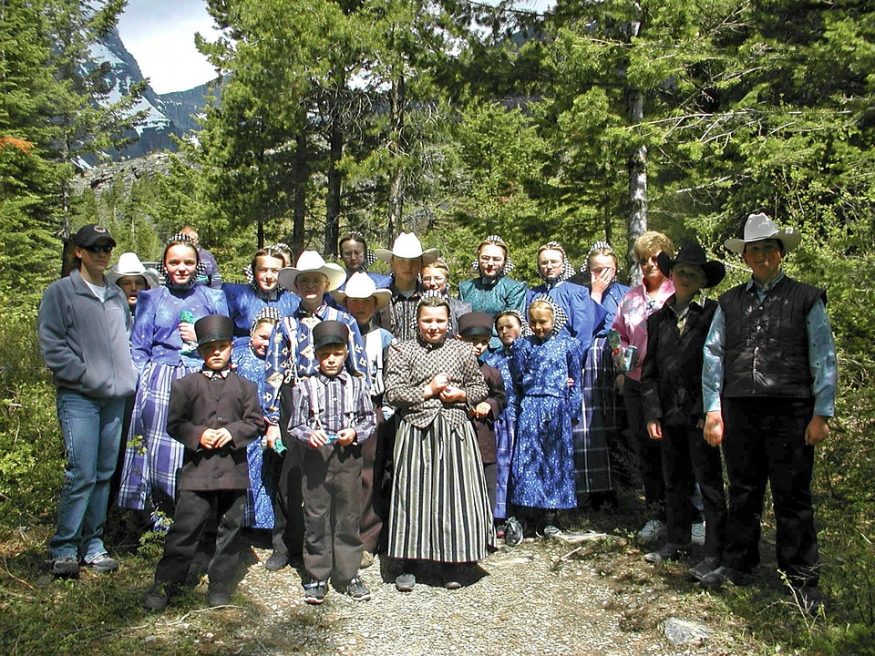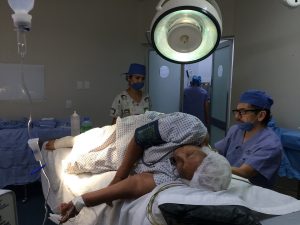
The Amish have definitive views on healthcare. In the eyes of the Amish people, God is the ultimate healer. As a result of this view, many Amish do not opt for modern healthcare practices.
In addition, it is common for the Amish to be uncomfortable with and actively avoid settings where technology is a key component. The Amish view of modern healthcare has many implications. At the top of the list of those implications is the fact that the Amish are more willing and more likely to suffer with medical issues.
The idea of “routine” test and medical treatments are not viewed by the Amish as being routine in any way. Let’s take a more in-depth look at how the Amish approach different aspects of medical care and health.
The Amish and Insurance

One major factor in the Amish approach to healthcare is that that Amish frequently don’t have insurance. The reason for this is that insurance would make them rely less on their community, which is an important cornerstone concept in the Amish world. Further, they have been exempt from Obamacare.
In Amish culture, when someone becomes seriously ill, the appropriate route is for community funds to be used to help that person. The church will often pay expenses and bills during bouts of serious illness.
The idea is that the individual can rely on the Amish community in the time of need. This value is key when it comes to understand the Amish people’s view on healthcare. However, insurance and the way that the modern healthcare system functions are counter to this approach and philosophy.
Many of what those outside of the Amish world would consider “basic healthcare” simply does not exist in the Amish world. Some of the most striking differences include the following: the Amish do not use birth control, use no special prenatal care and typically opt for no vaccines. Again, the core concept is that God is the ultimate healer and guider of health outcomes. In short, humans should not use technology to intervene in God’s plan for their health outcome.
The Amish, Technology and Emergency Medical Care
All of this is not to state that the Amish do not take steps to alter the course of health outcomes, as they do take often take steps in many cases. It is only that those steps typically do not directly use technology. Some of the healthcare steps that the Amish are willing to accept include vitamins, chiropractic, homeopathy and reflexology. In fact, some Amish even run health food stores in their communities.

The dedication to the principle that modern healthcare should be avoided usually runs deep in Amish culture. A prime example of this is that fact that often the Amish elderly and the sick will often even refuse emergency medical care. Additionally, many Amish will often seek unorthodox medical treatments outside of the country.
Being Amish in the Era of Obamacare
As stated above, the requirements and regulations of Obamacare do not apply to the Amish people, Mennonites or Hutterites. As a result, the Amish, Mennonites and Hutterites do not have to pay the Obamacare penalty for not having insurance; this is also true for some members of Native American tribes.

The reason behind this goes back to a 1965 when Congress allowed the Amish, Mennonites and other religions to opt out of Social Security, Medicaid and other government benefits. Often, those falling into these designated groups have benefits cards indicating that they are a member of one of these communities, as this helps hospitals keep track of various important detail in emergency situations.
The Amish Tend to Be Healthy
While it is true that the Amish forego what most people would consider modern healthcare, there is a big plus. In general, the Amish are rather healthy. In general, they have less need for healthcare than the “typical American.”
Many researchers are studying the overall Amish approach to health and dental care and have found many reasons for why the Amish tend to be healthy. Since the Amish are outside working on farms, they are getting more exercise than the non-Amish on a daily basis. Medical science has clearly proven a link between exercise and overall positive health, and the Amish usually get a good deal of exercise working the land.

In addition, studies have shown that exposure to the microbes in the soil have positive health benefits. Those benefits include everything from boosting mood to reducing the incidents of asthma and other health issues such as reduced incidents of allergies.
In fact, the Amish are being studied in an attempt to determine why they suffer from lower incidences of allergies than the non-Amish. Currently, the leading theory is that they are exposed to a wider array of bacteria from their proximity to the soil and farm animals.
Amish people also tend to have a healthier diet than the non-Amish, as they are eating lots of fresh, locally grown foods rather than consuming a diet full of fast food and preservatives.

So while the Amish are shying away from modern medical care, the good news is that they do have a lot of positive factors working in their favor.
How Will the Amish Handle the Medical Revolution Now Upon Us?
Ultimately, the Amish approach to health isn’t a one-dimensional approach. Like so much about the Amish, the Amish approach to medicine and health is a multifaceted one with many variables and considerations.
In general, the Amish tend to be a healthy group of people. In fact, their labor intensive lifestyle means that they are often more fit and durable than their non-Amish counterparts. It is difficult to determine if the Amish will embrace modern healthcare in the future.

New and incredible healthcare advancements such as organ cloning and even longevity treatments are moving out of the realm of science fiction and squarely into science fact. Gene therapies, stem cell treatments, nanomedicine and other medical wonders are becoming reality with shocking speed. Refusing these potentially wondrous medical breakthroughs could present a real challenge for the Amish in the next twenty to thirty years.